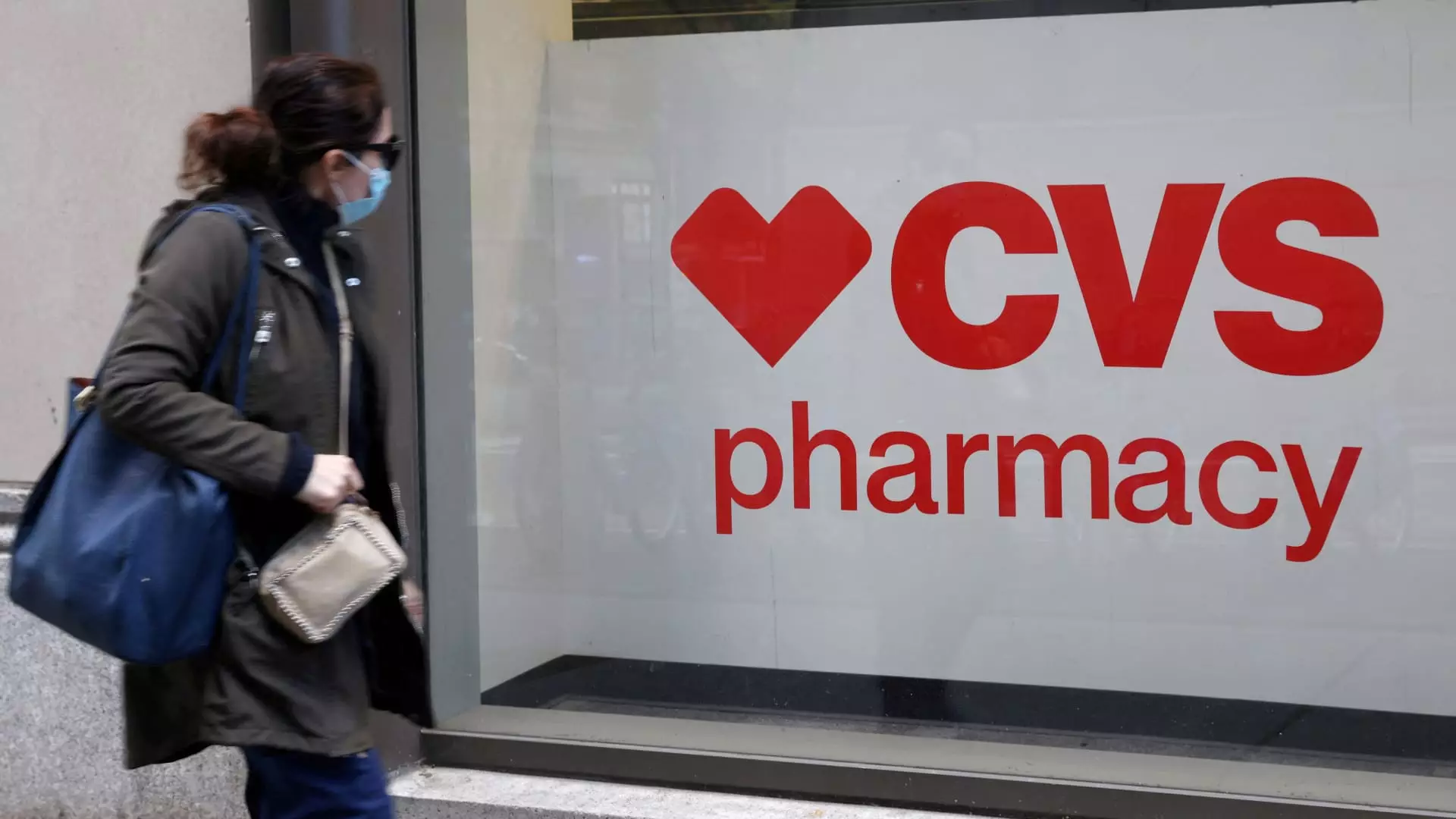CVS Health’s recent quarterly report reveals a company grappling with significant challenges that have dampened investor sentiment and raised questions about its strategic direction. The third-quarter earnings, which came under the leadership of new CEO David Joyner, illustrate the complexities faced by the retail drugstore chain as it navigates an environment marked by rising medical costs and shifting market dynamics. Joyner’s appointment comes at a critical juncture for CVS, as the company aims to restore confidence among investors and stabilize its operations.
CVS recorded a net income of $71 million—or just 7 cents per share—during the third quarter, a stark decline from the $2.27 billion, or $1.75 per share, reported in the same quarter the previous year. The earnings per share adjusted figure was $1.09, falling short of Wall Street’s expectation of $1.51. Despite these disappointments, revenue increased to $95.43 billion, exceeding analysts’ expectations of $92.75 billion and marking a 6.3% increase year-over-year. This divergence highlights the dual nature of CVS’s current situation, where revenue growth coexists with increasing operational pressures that ultimately impact profitability.
The adjustment to CVS’s earnings reveals the significant strain caused by unanticipated medical costs, particularly in its insurance sector, Aetna. Joyner noted a concerning trend of elevated utilizations among senior patients who are increasingly resuming postponed medical procedures, thus impacting claims and pushing costs higher. As a result, CVS refrained from providing a formal outlook for the remainder of the fiscal year, further underscoring the uncertain environment the company faces.
Investor sentiment towards CVS has soured, with shares plummeting nearly 27% throughout the year. The company has faced mounting pressure from activist investors to implement drastic changes and return to stability. To address these concerns, CVS recently appointed Steve Nelson as the new president of Aetna. With a wealth of experience from UnitedHealthcare, Nelson’s arrival aims to bolster investor confidence and implement management strategies that will effectively address the pressing costs facing the health insurer.
Additionally, Joyner emphasized the importance of establishing trust with stakeholders, stating that achievable guidance is paramount. This sentiment highlights the need for CVS to not only react to current challenges but also to formulate a path forward that reassures investors of its long-term viability.
In a bid to realign its operational focus, CVS has initiated a significant restructuring plan involving layoffs, store closures, and cost-cutting measures amounting to $2 billion over the next few years. The recent decision to close an additional 271 retail stores reflects CVS’s commitment to recalibrating its business model in an increasingly competitive market. This reduction in workforce, however, raises concerns about potential impacts on service levels and employee morale.
During the earnings call, Joyner provided insight into restructuring efforts while highlighting the company’s commitment to health care delivery and customer service. Notably, conditioning the business for sustainability is increasingly urgent given the shifting consumer behaviors post-pandemic, which necessitate a reevaluation of CVS’s traditional retail pharmacy model.
CVS’s insurance business reported revenue of $33 billion during the quarter, marking a 25% increase from the previous year. However, the unit’s adjusted operating loss of $924 million illustrates the financial burdens still weighing heavily on the company. The medical benefit ratio surged to 95.2%, signifying that expenses are now eclipsing income, particularly in Aetna’s sphere. This strain poses a considerable challenge for CVS management as they seek to optimize the efficiency and stability of their health care offerings.
While CVS’s health services unit, which includes its massive pharmacy benefits manager Caremark, experienced a notable decline of nearly 6% in revenue, the retail and consumer wellness division reported sales growth. This dichotomy underscores the varied performance across CVS’s operational segments amidst tumultuous conditions.
As CVS tries to regain momentum following a turbulent period, the company stands at a critical juncture marked by both opportunity and challenge. The new leadership under David Joyner aims to restore credibility, streamline operations, and adapt to the changing health care landscape. Balancing the pressures of rising costs with evolving consumer needs will be key to CVS’s long-term survival and success. The upcoming quarters will be telling in determining whether CVS can indeed turn the tide and emerge as a stronger entity in the health care marketplace.

